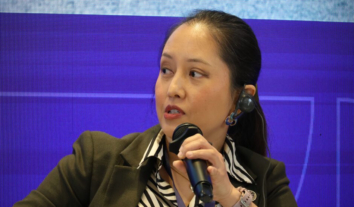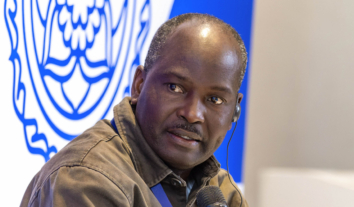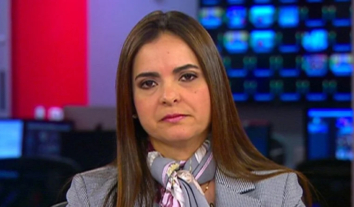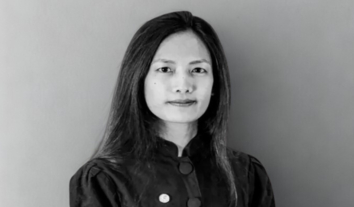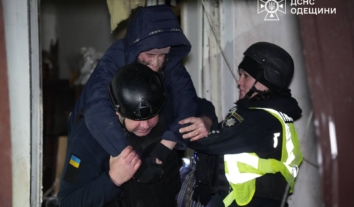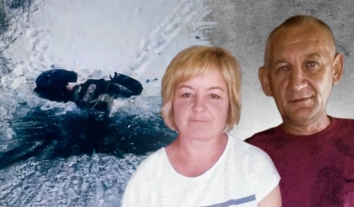Discrimination within framework of reforms?
Let’s get down to the bill No. 3501. For those not in the picture, it is designed to harmonize the national legislation on prevention of discrimination with the European Union law.
In lay terms, the bill No. 3501 closes the holes in the Ukrainian laws concerning protection from discrimination.
The important point is that it stipulates decriminalization of liability for discrimination. That is, if the new law is adopted, discrimination will be considered as an administrative offense and will entail administrative penalties.
This step should speed up and simplify the process of prosecution, the experts say hoping that the displays of discrimination will become more apparent and the victims will finally start to resort to the state authorities and the court for restoration of their rights.
What is “forgotten” in the bill? The discrimination based on sexual orientation and gender identity (SOGI) and, surprisingly, on health condition is again the most sensitive reference (or rather no reference) in the bill.
Our parliamentarians are stubbornly unwilling to notice the discrimination of LGBT people (lesbians, gays, bisexuals, transgenders and others). And, remembering the recent confrontation of the worlds on introducing of these features in the Labour Code, they decided to avoid it this time not to “do their head in”, apparently.
The Coalition for Combating Discrimination in Ukraine responded to it with a public statement, saying it is unacceptable to forget these three features.
The failure to introduce the prohibition of discrimination on SOGI in the basic anti-discrimination bill happens as there is no consolidated Parliament’s position on this point, says executive director of all-Ukrainian charity organization Fulcrum Bohdan Hloba.
“Taking into account the absence of the coalition, the Parliament cannot simply gather votes for this bill. The Parliament has still many opponents of any mention of SOGI in the legislation,” Hloba said.
The expert adds that if the prohibition of discrimination on SOGI was introduced in the current Labor Code of Ukraine while a new version has no this prohibition, then it would be absolutely logical to provide for such amendment in the basic bill.
Does anyone want to discriminate religious organizations? When the bill No. 3501 was put on vote, some MPs voiced the opinion (actually reproduced the position of religious organizations) that the new draft law allegedly contradicts the right to freedom of religion. Expert on non-discrimination Serhiy Ponomariov comments on the fundamental points.
“It is complete nonsense, as for me. I can explain it only by the fact that the MPs and the religious organizations lobbying against the law do not understand the essence of the bill and the essence of the right to freedom of religion, the human rights in a broader context,” the expert explains.
What does the bill stipulate? First, it stipulates exception which has not existed in the legislation before. The provisions of the new law stipulate that the religious organizations shall be banned from discriminating on any features in the field which does not apply to “religious or educational activity.” It is the international standard.
“As for freedom of conscience and religion, and from the point of view of the autonomy of religious communities, the religious organizations really should be granted the right to choose for religious activities only the people who have a certain ideology or act in accordance with it, have certain characteristics, etc. For example, the women cannot be priests in the Orthodox Church and a series of other confessions. And it would be wrong to accuse the respective religious communities of it.
But let’s be frank. The religious community should not have the right to discriminate in any other activity. It makes no sense (and is a violation of the law!) to refuse to employ a woman or a person of homosexual orientation in the religious community at any administrative or technical position such as bookkeeping or cleaning, and so on.
Or, for example, to allow religious organizations to pay women less for the same work men do, because certain confessional canons can be interpreted by the community in a way that a man should earn money for his family while work for a woman is just her hobby.
Second, the religious organizations ask the question “Are we now banned from preaching that homosexuality is a sin?” It is also nonsense as the bill No. 3501 does not regulate these issues. All that concerns preaching is done at the discretion of members of the religious organizations. However, if a priest wants to call to any intolerance or even physical violence at a public meeting, then it will be the incitement to discrimination entailing liability, even criminal one,” says Ponomariov.
Will the MPs vote for? The bill was passed in the first reading, having barely crossed the line of a half by gaining only 231 votes. Our MPs “hold the fort” firmly and become agitated like birds from any mention of non-discrimination.
Serhiy Ponomariov stresses that if the bill No. 3501 is not voted only because of these features (sexual orientation and gender identity), perhaps, it’s no need to make such sacrifices, at least now.
“It would be good if the bill enumerates all the important features, including SOGI, but I look at it primarily as a way to improve the mechanism of protection against discrimination, which will be a benefit for everyone. So, I would vote “for” even without some features,” the expert notes.
However, there is still a chance that the reforms will have an impact on this legislation as well. Co-chair of the Coalition for Combating Discrimination in Ukraine Maria Yasenovska expresses such a hope.
“Our proposals are aimed both at the general purpose of the bill – harmonization of the national legislation in line with the EU requirements and improvement of the situation with freedom from discrimination and strengthening the protection of groups vulnerable to discrimination, without silencing and manipulations,” Yasenovska comments.
The human rights activist believes that the bill No. 3501 in general complies with the EU practice. However, it is important to introduce substantial amendments, mentioned in the statement of the Coalition for Combating Discrimination.
“The previous legislative changes in combating discrimination occurred only under considerable pressure from the public and the international community. We have sent our proposals to the heads of parliamentary factions. I really hope that they will be considered and taken into account during the vote,” Yasenovska says.
Nobody will be affected by protection against discrimination, everyone will benefit. Why is it so difficult for our MPs to understand this?

